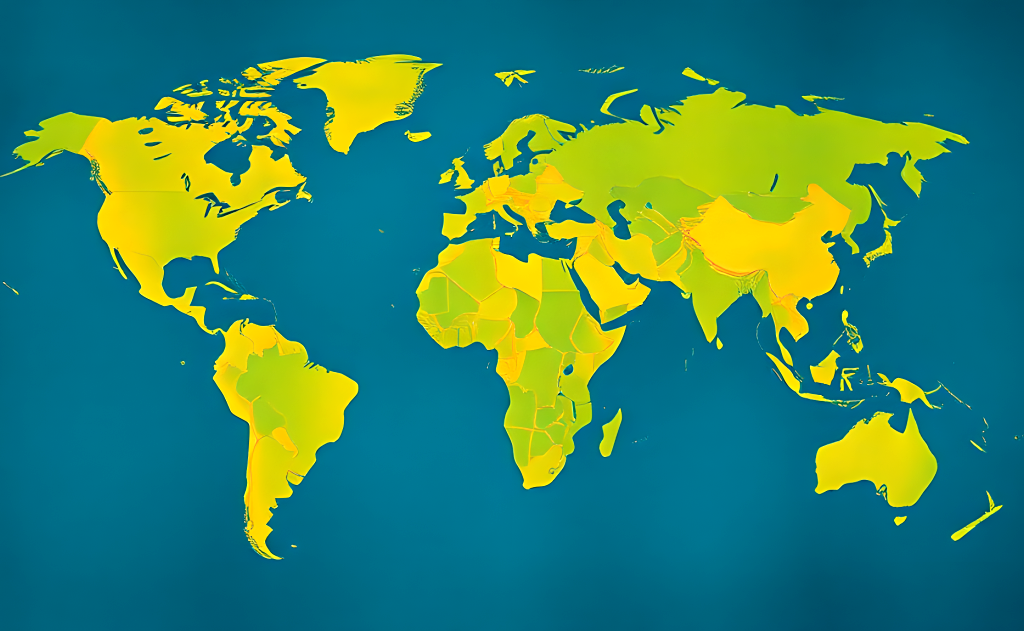Mental Health: A Journey to Wellbeing in a Complex World
In today’s fast-paced world, mental health has emerged as one of our most pressing yet often overlooked global challenges. Despite affecting millions worldwide, the gap between those needing mental health support and those receiving it remains alarmingly wide. The good news? There are affordable and effective strategies to promote, protect, and restore mental wellbeing—strategies that address the complex interplay of individual, social, and structural factors that shape our psychological health. From supportive relationships and quality education to community cohesion and accessible healthcare, the building blocks for better mental health exist all around us, waiting to be properly implemented.
Yet understanding mental health requires looking beyond individual experiences to recognize the broader social determinants that impact our wellbeing. 💭 When poverty, violence, discrimination, or isolation enter the equation, vulnerability to mental health challenges increases dramatically. This is why transforming mental health care demands a multisectoral approach—one that moves beyond traditional institutional settings toward community-based services that respect human rights while delivering better outcomes. Throughout this blog, we’ll explore the comprehensive landscape of mental health, from understanding its foundations to examining global initiatives like WHO’s “Comprehensive mental health action plan 2013–2030” that aim to bridge the care gap for conditions like depression and anxiety that affect millions worldwide.
Understanding Mental Health: A Comprehensive Overview
Defining mental health and its significance in overall well-being
Mental health forms a crucial component of our overall well-being, extending far beyond the mere absence of mental disorders. According to the foundational concepts covered in the Mental Health Care Fundamentals Specialization, mental health encompasses our emotional, psychological, and social well-being, affecting how we think, feel, and act in daily life. Mental wellness enables individuals to cope with normal life stressors, work productively, and contribute meaningfully to their communities.
The significance of mental health has gained increasing recognition in healthcare settings, with confidentiality and ethical standards forming cornerstones of effective mental health care. HIPAA regulations, as highlighted in the specialization’s first lesson, protect sensitive patient information, creating safe spaces for individuals seeking mental health support.
The complex interplay of individual, social, and structural determinants
Mental health exists within a complex ecosystem influenced by multiple determinants. Drawing from contemporary mental health theories covered in the specialization, we understand that mental wellness results from the interplay between individual biological factors, psychological processes, and broader social environments.
Historical and contemporary mental health theories acknowledge this complexity, moving from purely biological explanations toward more integrated biopsychosocial models. These frameworks recognize that mental health is shaped by:
- Individual factors: Genetic predispositions, neurochemistry, and personal resilience
- Social determinants: Family dynamics, community support, and cultural contexts
- Structural elements: Access to healthcare, socioeconomic status, and systemic barriers
How mental health vulnerabilities change across different life stages
Mental health needs and vulnerabilities evolve throughout the lifespan. The specialization’s third lesson emphasizes the importance of recognizing signs and symptoms of impaired mental health across different developmental stages.
Children, adolescents, adults, and older adults face unique mental health challenges related to their life stage. For instance, developmental disorders may become apparent in childhood, while neurocognitive conditions often emerge in older adulthood. The ability to recognize these stage-specific vulnerabilities enables more effective early intervention and support.
Mental health professionals are trained to identify these changing vulnerabilities, with the course providing foundational knowledge in recognizing the signs and symptoms of various mental health disorders. This life-stage approach allows for more personalized and appropriate mental health care delivery.
With this comprehensive overview of mental health established, we can now explore the various factors that specifically impact mental wellness. In the next section, “Factors That Impact Mental Health,” we’ll examine the precise elements that can either strengthen or compromise our mental well-being, building upon the foundational concepts we’ve discussed here.
Factors That Impact Mental Health
Now that we have explored a comprehensive overview of mental health, it’s crucial to understand the various factors that influence our mental well-being. Mental health is shaped by a complex interplay of biological, psychological, and social elements that vary significantly among individuals.
Individual Psychological Factors and Genetic Influences
Mental health conditions often have a hereditary component. Research has shown familial links in disorders such as schizophrenia, suggesting genetic predisposition plays a role in some mental health conditions. However, it’s important to note that many individuals with mental health problems do not have a family history of similar conditions, highlighting the complex relationship between genetics and environmental factors.
Brain chemistry also impacts mental health, particularly neurotransmitters like serotonin and dopamine. While the evidence supporting chemical imbalances as primary causes of mental health issues is limited, psychiatric medications targeting these brain chemicals can effectively relieve symptoms for many individuals, though responses vary considerably.
Psychological factors such as body image concerns, experiences of stigma and discrimination, and trauma can profoundly affect mental well-being. These internal experiences shape how we perceive and interact with the world around us, potentially contributing to or exacerbating mental health challenges.
Adverse Social Conditions Including Poverty and Violence
Multiple social determinants significantly impact mental health. These include:
- Childhood abuse and trauma
- Social isolation and loneliness
- Discrimination and human rights violations
- Poverty and debt
- Unemployment and work-related stress
- Housing insecurity and homelessness
- Domestic violence and prolonged stress
- Substance misuse
These adverse conditions create environments where mental health problems are more likely to develop or worsen. For instance, financial hardship can lead to constant stress and anxiety, while experiences of violence can result in trauma-related conditions.
Physical health conditions also influence mental well-being, with long-term physical health challenges often coinciding with mental health difficulties. Additionally, lifestyle factors like diet, sleep quality, and alcohol or drug use can impact mental health, though they are typically not the sole contributors to mental health problems.
Protective Factors That Build Resilience and Promote Well-being
Despite the many risk factors for poor mental health, certain protective elements can foster resilience and support well-being:
- Strong social connections and meaningful friendships
- Access to nature and outdoor environments
- Positive work-life balance
- Companionship from pets
- Self-care practices including proper nutrition
- Recognition and appropriate support for conditions like autism that affect mental processing
These protective factors can buffer against stress and adversity, helping individuals maintain better mental health even when facing challenges. For example, strong social support networks can provide emotional resources during difficult times, while connection with nature has been shown to reduce stress and improve mood.
With this understanding of the factors that impact mental health, we can now explore effective strategies for promoting mental well-being in various contexts and populations. The next section will delve into practical approaches to mental health promotion that address these complex influences and build upon protective factors.
Effective Mental Health Promotion Strategies
Now that we’ve explored the various factors that impact mental health, let’s examine proven strategies for promoting mental wellness across different settings. Effective mental health promotion goes beyond individual interventions, requiring coordinated approaches that address mental health at multiple levels of society.
School-based Social-emotional Learning Programs
School environments offer prime opportunities for implementing mental health promotion strategies. Programs like “Becoming a Man” (BAM) provide crucial support for young men navigating personal development in challenging environments. These initiatives help students develop emotional management skills, which are fundamental components of mental wellness.
Educational institutions can integrate comprehensive social-emotional learning that teaches young people how to understand and manage their emotions effectively. By protecting children from trauma and providing them with tools to build resilience, these programs serve as a form of primary prevention, stopping mental health problems before they begin.
Community-based Prevention Initiatives
Community-level prevention operates on multiple fronts. The Community Integration Centre (CIC) in Gurugram exemplifies effective community-based prevention through its free recovery program for individuals with serious mental illnesses. This initiative helps participants regain self-worth and build meaningful lives through both structured activities and leisure engagements like community outings and tree planting.
Sambandh’s Village Project demonstrates how mental health services can be extended to underserved rural areas, having successfully reached four villages around Gurugram. Additionally, their awareness programs combat stigma through street plays, workshops, and educational materials distributed throughout communities.
Family Self-Help Groups (FSHG) and family counseling services provide essential support for caregivers, creating spaces where families can share experiences and strategies for recovery while alleviating feelings of guilt and stress associated with caregiving.
Multi-sectoral Collaboration Beyond the Healthcare System
Addressing mental health effectively requires looking beyond clinical settings to consider broader social, economic, and environmental factors. The Project Recovery initiative aligns with the New Mental Health Care Act of 2017, shifting focus from purely clinical approaches to social and personal recovery models.
Multi-sectoral collaboration involves tackling inequalities that contribute to poor mental health outcomes. This includes:
- Supporting effective parenting initiatives
- Creating stress-minimizing workplace environments
- Developing programs to combat loneliness among the elderly
- Fostering community connections that support all residents
- Providing assistance for individuals experiencing suicidal thoughts
The collaboration between the Haryana Government and community organizations in establishing the District Mental Health Programme demonstrates how government entities can work with grassroots organizations to extend mental health services across regions.
With these mental health promotion strategies in mind, we’ll next explore how these approaches are contributing to transforming mental health care systems more broadly, creating sustainable frameworks that support comprehensive mental wellness for all.
Transforming Mental Health Care
Now that we’ve explored effective mental health promotion strategies, let’s examine how mental health care systems themselves are evolving to better serve communities and individuals.
Benefits of community-based mental health services over institutional care
The Sakalawara Community Mental Health Centre (SCMHC) exemplifies the significant advantages of community-based care models. Established in 1976 near Bangalore, this center demonstrates how localized services can provide specialized treatment while keeping patients connected to their communities. Unlike traditional institutional settings, SCMHC offers targeted outpatient clinics for specific conditions—Common Mental Disorders on Mondays, Severe Mental Disorders on Wednesdays, and Alcohol and Tobacco Addiction on Fridays—allowing for specialized care without long-term hospitalization.
Community-based services like SCMHC’s home care program ensure treatment adherence through bi-monthly visits, preventing relapses while allowing patients to maintain their normal lives and social connections—a critical factor in mental health recovery that institutional care often disrupts.
Creating integrated support networks across healthcare and social systems
The integration of healthcare and social support is evident in SCMHC’s comprehensive approach. Their Sakalawara Rehabilitation Services (SRS) bridges clinical treatment with psychosocial rehabilitation, incorporating:
- Daily living skills development
- Behavioral interventions
- Group therapy sessions
- Vocational training through partnerships with local industries
This integrated model extends beyond healthcare into education through their weekly School Mental Health Programme, which provides life skills education and mental health awareness to high school students. Such cross-sector collaboration creates a more robust support network that addresses mental health holistically rather than treating it as solely a medical concern.
Human rights-centered approaches to mental health treatment
SCMHC’s rehabilitation model embodies a rights-based approach to mental health care by emphasizing individual autonomy and dignity. Their “place and train” vocational rehabilitation model focuses on enhancing patients’ functional and financial independence through personalized assessments and training programs. This approach recognizes employment not just as economic necessity but as a fundamental aspect of human dignity and social inclusion.
The center’s emphasis on in-house activities such as group therapy, cooking demonstrations, crafts, and sports creates a supportive community environment where patients are active participants in their recovery journey rather than passive recipients of care. Additionally, comprehensive mental health education programs for both inpatients and outpatients empower individuals with knowledge about their conditions and general well-being, supporting their right to informed decision-making about their own health.
With these transformative approaches to mental health care taking root in communities around the world, we’ll next explore how global action on mental health is creating international momentum for change and establishing new standards for care and support across diverse cultural contexts.
Global Action on Mental Health
Now that we’ve explored how mental health care is being transformed at the local and national levels, it’s important to understand the coordinated global efforts that are shaping mental health policies and practices worldwide.
WHO’s “Comprehensive mental health action plan 2013–2030”
In May 2013, a significant milestone for global mental health was achieved when the Sixty-sixth World Health Assembly, comprising Health Ministers from 194 Member States, adopted the WHO’s Comprehensive Mental Health Action Plan 2013-2020. Recognizing the ongoing importance of this initiative, the Seventy-second World Health Assembly extended the plan until 2030 in 2019.
The plan emphasizes a life-course perspective on mental health and highlights the critical role of mental health in achieving overall health for all individuals. It advocates for equity through universal health coverage while placing a strong emphasis on prevention strategies. The action plan is structured around four fundamental objectives:
- Enhancing leadership and governance for mental health
- Providing comprehensive and integrated community-based mental health and social care services
- Implementing promotion and prevention strategies
- Strengthening information systems, evidence, and research

Progress challenges and recent calls for transformation
In 2021, the global mental health landscape saw further development when the Seventy-fourth World Health Assembly endorsed important updates to the plan. These updates were designed to enhance implementation strategies and refine indicators to better track progress. While maintaining its core objectives, the revised action plan introduced new indicators and implementation options to address emerging challenges in global mental health initiatives.
Despite these advancements, significant challenges remain in achieving universal access to mental health services, particularly in regions with limited resources and infrastructure for mental health support.
Strategic support available for governments and organizations
The updated Comprehensive Mental Health Action Plan 2013-2030 provides a robust framework for Member States, the WHO Secretariat, and various partners to enhance mental health and well-being globally. It delineates specific actions for:
- Preventing mental health disorders for at-risk populations
- Achieving universal access to mental health services
- Strengthening community-based mental health and social care services
This framework serves as a strategic guide for governments and organizations worldwide, offering evidence-based approaches to address mental health challenges within their specific contexts.
With these global initiatives providing direction and support for mental health action, the next step for individuals is understanding how to connect with available resources and support systems. In the next section, we’ll explore practical ways to access mental health resources and build supportive networks that can contribute to overall mental wellness.
Connecting with Resources and Support
Now that we’ve explored global mental health initiatives, it’s important to understand how individuals can directly access the support they need. Finding appropriate resources is a crucial step in one’s mental health journey.
Finding condition-specific information and guidance
Accessing specialized mental health support tailored to your specific needs is essential. In cities like Bengaluru, curated lists of mental health professionals specialize in various areas such as anxiety, depression, LGBTQIA concerns, chronic illness, grief, and relationship issues. These therapists, like Shaheen Khan, Radhika Joshi, and Anurag Pankajakshan, offer specialized services designed to address your unique mental health challenges. Many mental health centers also provide psychometric assessments that can help identify specific conditions and guide your treatment path.
When seeking condition-specific guidance, look for professionals who clearly indicate their areas of expertise. This transparency helps ensure you connect with someone equipped to address your particular concerns, making your mental health journey more effective and targeted.
Building community connections with others facing similar challenges
Mental health support extends beyond individual therapy sessions. Group therapy gatherings and support groups foster a sense of community and shared experience among participants. These community connections can be invaluable for:
- Reducing feelings of isolation
- Providing peer validation and understanding
- Offering practical coping strategies from those with lived experience
- Creating a supportive network during challenging times
Both online and offline support options are increasingly available, making these communities accessible regardless of your location or mobility constraints. These connections complement professional treatment by providing the empathy that comes from others walking similar paths.
Accessing reliable, evidence-based mental health content
When navigating mental health resources, the quality and reliability of information is paramount. Centers like Amaha distinguish themselves by employing highly qualified and internationally trained therapists and psychiatrists who provide evidence-based interventions. These professionals maintain strict confidentiality and data security standards while delivering compassionate care.
When evaluating mental health content and services, consider:
- The credentials and training of the professionals
- Whether approaches are evidence-based
- Client testimonials and ratings (centers like Amaha boast an average rating of 4.9/5)
- Integration of technology that enhances accessibility through flexible scheduling of sessions
- Clear information about what to expect from treatment, including potential duration
Reliable mental health support resources should address common questions about different types of care, such as the differences between psychiatry and therapy, helping you make informed decisions about your mental health journey.
Mental health remains one of our most critical global health priorities as we move through 2025. The complex interplay of individual, social, and structural factors that influence our mental wellbeing requires a comprehensive, collaborative approach across sectors including healthcare, education, and social services. By implementing effective promotion strategies like school-based social-emotional learning programs and community-based mental health services, we can bridge the significant care gap that exists for conditions like depression and anxiety while respecting human rights and individual dignity.
The journey toward better mental health doesn’t end with awareness—it demands action. Whether you’re struggling personally or supporting someone who is, remember that affordable and effective resources exist. Connect with platforms like Bezzy that offer community support for those facing chronic health challenges, explore the wealth of educational materials available, and advocate for the implementation of WHO’s comprehensive mental health action plan in your community. Together, we can transform mental health care from an afterthought to a cornerstone of global wellbeing, ensuring that quality mental health support becomes accessible to everyone, regardless of their circumstances.

